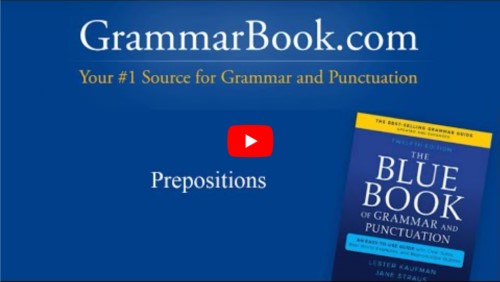|
A reflexive pronoun in English is one that refers back to itself: myself, yourself, himself, herself, itself, oneself, ourselves, yourselves, themselves. It is used when the subject and the object of a sentence are the same. It can act as either an object or an indirect object:
We should finish it by ourselves. (object of a prepositional phrase)
He gave himself a raise. (indirect object) |
An intensive pronoun is a reflexive pronoun that emphasizes (intensifies) the subject rather than referring back to it as an object or an indirect object. It achieves this emphasis by repeating the subject:
We ourselves should finish it.
He himself gave a raise. |
An intensive pronoun also can often appear before or after the verb:
We ourselves should finish it.
We should finish it ourselves. |
Intensive pronouns are not used alone in a sentence:
Incorrect: Ourselves should finish it.
Incorrect: Should finish it ourselves.
Incorrect: Himself gave a raise.
Incorrect: Gave a raise himself. |
It is plausible that statements such as "should finish it ourselves" and "gave a raise himself" might appear as clipped conversation in a quotation or in fictional writing, but we would avoid such constructions in daily formal writing.
How to Further Distinguish Intensive Pronouns
To separate intensive pronouns from reflexive pronouns, we will remember that while they look the same, their functions are different, as shown in the preceding examples.
The meanings of the example sentences change when the reflexive pronouns become intensive pronouns. Reflexive pronouns influence the information in a sentence. Intensive pronouns do not: They can be removed without affecting meaning or clarity.
With intensive pronoun: He himself gave a raise.
Without: He gave a raise. (no change in meaning) |
Now compare what happens when the reflexive pronoun is taken out:
With reflexive pronoun: He gave himself a raise. (He received the raise.)
Without: He gave a raise. (He gave a raise, and we do not know who received it.) |
Why Use Intensive Pronouns?
Intensive pronouns' main utility is to draw greater attention to a statement's context. They often are included to convey something that might deserve extra focus or that surprises expectations:
Nathaniel himself will present the award. (There is something significant about Nathaniel presenting the award instead of somebody else.)
The CEO herself replaced the broken window. (Not all people might expect a company CEO to replace a broken window.) |
Related Topics
Personal Pronouns
Reflexive Pronouns
| 




